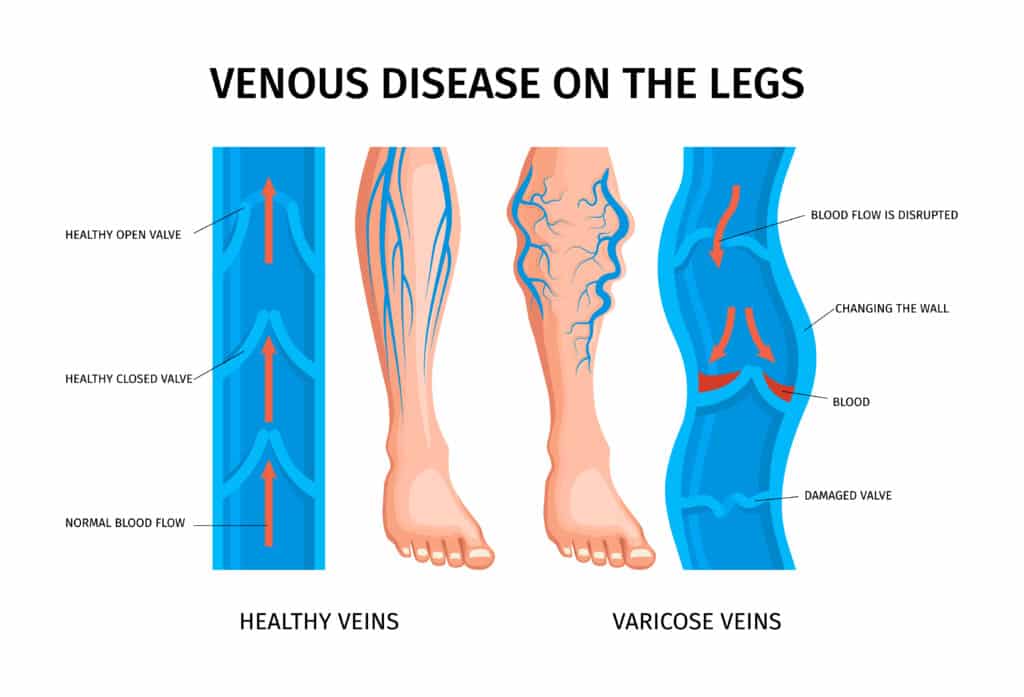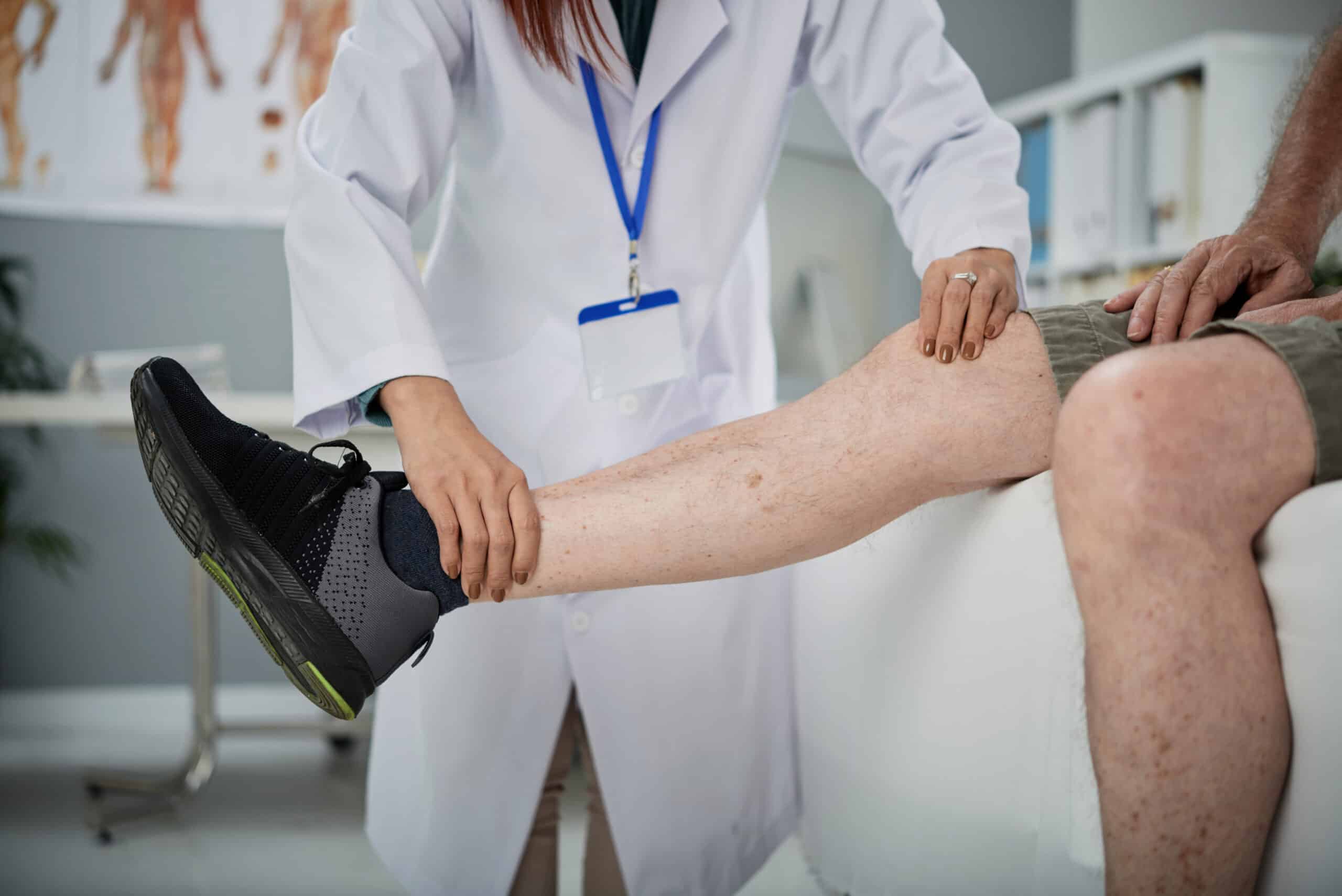Horse Chestnut For Chronic Venous Insufficiency: A Detailed Analysis
Struggling with achy, swollen legs could mean chronic venous insufficiency, a condition where your veins have trouble sending blood back to your heart. Horse chestnut seed extract has emerged as a promising natural remedy for this ailment.
Our detailed analysis will reveal the science behind horse chestnut and how it might offer you relief. Discover the potential of this plant-based treatment right here.
Key Takeaways
- Horse chestnut seed extract may help with leg pain and swelling caused by chronic venous insufficiency. It can work well for some people instead of wearing tight socks to treat their veins.
- While horse chestnut seed extract seems promising, people with kidney or liver problems should not use it without first talking to a health expert.
- Studies suggest that horse chestnut can reduce symptoms linked to poor blood flow in the legs, but the quality of these studies varies. More research is needed to be sure about its benefits.
- Newer forms of horse chestnut seed extracts that might be better at helping treat vein problems are being made. Researchers keep looking for ways to improve how we use this plant-based treatment.
- The European Medicines Agency and scientific research back up using horse chestnut for swollen legs and other issues from bad vein health. But always check if it’s safe with other medicines you might be taking.
What is Chronic Venous Insufficiency?

Chronic Venous Insufficiency (CVI) is a condition in which the veins of the legs struggle to send blood back to the heart. This can lead to symptoms such as leg swelling, discomfort, and skin changes, making seeking treatment for improved quality of life important.
Description of the condition
Chronic Venous Insufficiency, or CVI, is a problem with the blood flow in the legs. In this condition, the veins can’t send enough blood back to the heart. This happens because the vein walls are weak or the valves don’t work right.
Blood starts to pool in the legs and causes symptoms like swelling, pain, and even open sores called venous ulcers.
People with CVI might feel tired legs or see varicose veins – those big blue lines on their skin. Not being treated early can lead to more serious problems over time. Doctors often tell people with this issue to wear special socks that squeeze their legs and help blood move better.
But there are other things, like horse chestnut extract, that some folks use, too. It comes from a tree and might help reduce leg pain and reduce swelling when used as part of treatment for CVI.
Importance of treating
Treating chronic venous insufficiency is key because it can lower the swelling in a person’s legs and make them smaller. If not cared for, the veins in the legs can get worse.
This means more pain, leg cramps, and skin problems. Horse chestnut seed extract has shown good results for people with this vein problem.
It’s also important to treat because it might prevent varicose veins from worsening. Plus, horse chestnut seed extract might lower inflammation linked to venous issues. Before using horse chestnut, talking to a health expert is smart, especially for folks with kidney or liver troubles.
They can guide you on how to use this remedy safely.
The Use of Horse Chestnut Seed Extract
Horse chestnut seed extract has been used as an intervention for chronic venous insufficiency. This section will explore the background, objectives, and how this intervention treats the condition.
Background and objectives
People use horse chestnut seed extract to help with leg problems. The German Commission E says it’s good for treating chronic venous insufficiency (CVI). This condition can make your legs swell and hurt.
Scientists have found that a part of the horse chestnut called aescin can improve veins.
Doctors often tell people with CVI to wear tight socks that squeeze their legs, but these can be uncomfortable. Horse chestnut seeds offer another way to deal with the swelling and pain without needing those tight socks.
Researchers want to know how well this works and if it is safe for everyone, especially since folks with kidney or liver problems should stay away from it.
How the intervention works
Horse chestnut seed extract works by addressing endothelial dysfunction, which can lead to conditions such as hypertension and atherosclerosis. By taking the extract orally, individuals aim to treat poor circulation and leg swelling associated with chronic venous insufficiency.
The extract’s mechanism involves reducing chronic venous insufficiency, trauma, or surgery inflammation. This natural remedy contains active components that have been found to benefit patients with chronic venous insufficiency, offering potential relief from symptoms like leg volume and transcapillary filtration in this condition.
When experiencing chronic venous insufficiency, turning to horse chestnut seed extract may offer a promising intervention due to its role in alleviating inflammation and addressing endothelial dysfunction.
Results of Studies on Horse Chestnut for Chronic Venous Insufficiency
Studies using horse chestnut seed extract for chronic venous insufficiency have shown promising results, improving symptoms and overall venous health. The quality of evidence from these studies varies, but there is a general agreement on the potential benefits of using this intervention for managing chronic venous insufficiency.
Summary of main findings

Studies have shown that horse chestnut seed extract can effectively treat chronic venous insufficiency, offering a potential alternative to uncomfortable compression treatments.
The use of horse-chestnut medicines is based on their traditional medicinal value and has been researched for various health conditions, including irritable bowel syndrome. Additionally, the therapeutic properties of horse chestnut seeds make it a promising option for long-term management of chronic venous insufficiency.
The well-established use of horse chestnut seed extract as an herbal remedy provides an encouraging avenue for those dealing with chronic venous insufficiency. It also offers the possibility of exploring innovations in its application, making it an exciting area for further research and development in natural treatments.
Quality of evidence
The effectiveness of horse chestnut seed extract for chronic venous insufficiency has been assessed in 17 randomized controlled studies. Evidence for the potential anti-edematous and anti-inflammatory activity of horse chestnut seed extract has been highlighted as a factor in its effectiveness for chronic venous insufficiency.
Comparative studies have assessed the effectiveness of horse chestnut seed extract and other treatments for chronic venous insufficiency. Potential biases in the review process have also been scrutinized to ensure that the evidence presented is reliable and valid, providing a comprehensive assessment of the intervention’s impact on managing this condition.
Furthermore, careful analysis of previous research findings and systematic reviews offers valuable insights into the benefits and limitations of using horse chestnut seed extract as a therapeutic option.
Potential biases in the review process
Potential biases in the review process can affect how we understand the effectiveness of horse chestnut seed extract for chronic venous insufficiency. It is crucial to consider these potential biases when looking at the benefits of horse chestnut supplementation for chronic venous issues.
Despite these potential biases, more research is necessary to fully comprehend the advantages of horse chestnut extract for chronic venous insufficiency.
Agreement and disagreements with other studies
Several randomized controlled trials have provided evidence supporting the effectiveness of horse chestnut extract for chronic venous insufficiency, indicating a consensus among these studies.
However, some studies have conflicting results and disagreements regarding the safety and efficacy of horse chestnut extract for this condition, highlighting the need for further research and analysis to clarify any discrepancies.
In summary, while some studies show agreement on the positive effects of horse chestnut extract in addressing chronic venous insufficiency, there is also a presence of contradictory findings that point towards potential differences in outcomes based on varying study methodologies or participant characteristics.
Implications for Treatment and Research
The implications for treating and researching horse chestnut seed extract for chronic venous insufficiency are promising, with potential new innovations in developing this natural therapy.
To explore these exciting developments, read on to discover how horse chestnut could benefit those suffering from this condition.
Implications for practice
Consider incorporating horse chestnut seed extract into your treatment plan for chronic venous insufficiency, but consult with a healthcare professional first. If you have kidney or liver disease, avoid taking horse chestnut to prevent potential complications.
Short-term studies have shown the effectiveness of horse chestnut seed extract in alleviating symptoms of chronic venous insufficiency, highlighting its potential as a complementary therapy option.
Incorporating reliable sources and credible evidence is crucial when considering the use of horse chestnut for chronic venous insufficiency. Stay informed about the latest innovations in horse chestnut extraction methods to ensure optimal quality and efficacy.
Innovations in horse chestnut extract
Recent advancements in horse chestnut seed extract have led to developing new and more concentrated formulations that offer improved effectiveness. Studies have indicated that these innovations may enhance the potential benefits of horse chestnut for treating chronic venous insufficiency, providing hope for better management of this condition.
Furthermore, ongoing research is exploring the utilization of advanced extraction methods to optimize the active components in horse chestnut seed extract, potentially leading to enhanced therapeutic outcomes for individuals with chronic venous disease.
Moreover, novel delivery systems and formulations are being investigated to improve the bioavailability and tolerability of horse chestnut seed extract, making its use more convenient and accessible for individuals seeking alternative treatment options for chronic venous insufficiency.
Sources of support
Studies from reputable sources like the European Medicines Agency and scientific research have supported horse chestnut seed extract for treating chronic venous insufficiency.
The evidence suggests that this natural remedy may offer benefits such as reducing leg swelling, relieving varicose veins, and addressing other symptoms associated with this condition.
Additionally, conservative therapies for chronic venous insufficiency often include mechanical compression treatments, and horse chestnut seed extract has shown potential as a complementary option in managing this condition.
Furthermore, ongoing innovations in herbal medicine are exploring new ways to enhance the therapeutic properties of horse chestnut extract, potentially leading to improved treatment options for individuals dealing with chronic venous insufficiency.
References and additional resources
When seeking information on horse chestnut seed extract for chronic venous insufficiency, it is important to consider the following references and additional resources:
- Examine Database: A reliable source offering comprehensive details on dosages and supplementation of horse chestnut seed extract for varicose veins and venous insufficiency.
- Primary Sources: Studies and scientific references provide valuable information supporting the efficacy and safety of horse chestnut seed extract for chronic venous insufficiency, reinforcing the evidence-based approach to understanding its benefits.
- Potential Interactions: Additional resources are available to review potential interactions with medications and side effects associated with horse chestnut seed extract, ensuring a thorough consideration of safety and efficacy.
FAQs
Q: What is chronic venous insufficiency (CVI)?
A: Chronic venous insufficiency (CVI) is a condition where the veins in the legs do not efficiently return blood to the heart. This can lead to symptoms such as leg swelling, pain, and varicose veins.
Q: How can horse chestnut be beneficial for treating chronic venous insufficiency?
A: Horse chestnut contains a compound called aescin, which has been shown to improve vein health and reduce symptoms of CVI, such as swelling and pain.
Q: What are the common symptoms of chronic venous insufficiency?
A: Common symptoms of CVI include leg swelling, pain, aching, cramping, itching, and the development of varicose veins.
Q: Is it safe to take horse chestnut for chronic venous insufficiency?
A: When used as directed, horse chestnut is generally considered safe for most people. However, it’s important to consult with a healthcare professional before starting any new supplement, especially if you have existing health conditions or are taking other medications.
Q: Are there any side effects associated with horse chestnut?
A: Some people may experience side effects such as stomach upset, itching, or allergic reactions when using horse chestnut. It’s important to discontinue use and seek medical attention if any adverse reactions occur.
Q: How should horse chestnut be used to treat chronic venous insufficiency?
A: Horse chestnut can be taken as oral supplements or applied topically as a gel or cream. Follow the recommended dosage and administration instructions provided by a healthcare professional or the product label.
Q: Can horse chestnut be combined with other chronic venous insufficiency treatments?
A: Horse chestnut can be combined with leg compression stockings and other therapies for CVI. However, discussing any combination treatments with a healthcare provider is essential to ensure safety and effectiveness.
Q: What is the evidence supporting the use of horse chestnut for CVI?
A: Numerous studies have indicated the potential benefits of horse chestnut in relieving symptoms and improving vein function in individuals with chronic venous insufficiency. However, more research is needed to establish its effectiveness fully.
Q: Is horse chestnut considered a dietary supplement?
A: Yes, horse chestnut is commonly available as a dietary supplement, such as standardized seed extracts, which are used to support vein health and manage symptoms of chronic venous insufficiency.
Q: Can horse chestnut be beneficial for chronic deep vein incompetence?
A: Some evidence suggests that horse chestnut may benefit individuals with chronic deep vein incompetence by improving blood flow and reducing symptoms associated with the condition.

